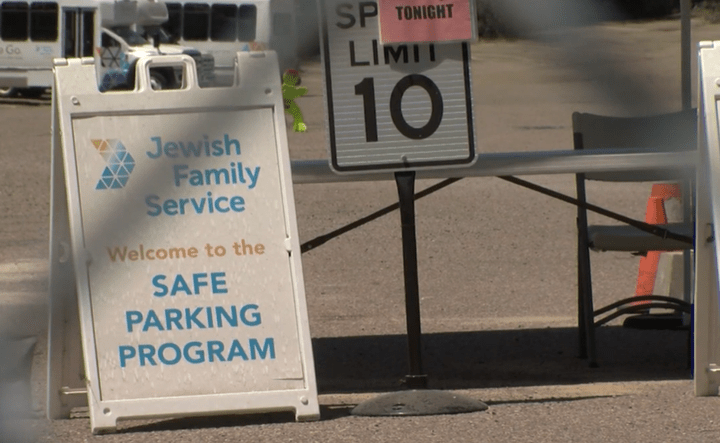As of October 10, 2024, employers in the unincorporated areas of San Diego County must comply with a new Fair Chance Ordinance (FCO) that regulates the use of criminal history in employment decisions. Building on California’s Fair Chance Act (CFCA), the ordinance establishes additional protections for individuals with criminal records seeking employment. Employers must be fully aware of the obligations and restrictions imposed by this ordinance to remain compliant and avoid penalties. ...Tap To Read The Full Story Here | ..Tap To Read The Full Story Here...
What is the San Diego County Fair Chance Ordinance, and to whom does it apply?
The Fair Chance Ordinance applies to employers with five or more employees, including those conducting business remotely in the unincorporated areas of San Diego County. The definition of “employment” under the ordinance is expansive. It includes “any work provided in furtherance of an employer’s business enterprise within the unincorporated areas, which specifically encompasses remote work performed from locations within these areas.”
While the ordinance does not explicitly mention contractors or non-traditional employees, the broad definition of employment suggests that contractors, gig workers, or other non-traditional employees may also fall under its scope if they perform at least two hours of work on average each week within the unincorporated areas of San Diego County. Employers using such workers should review their hiring practices and background check procedures to ensure compliance with the FCO.
The ordinance itself does not define the unincorporated areas of San Diego County, but the County maintains several lists that identify the communities falling within these areas. Employers should refer to these resources to determine if their business locations or remote workers operate within the unincorporated regions affected by the FCO.
What hiring practices are prohibited under the ordinance?
The ordinance makes several practices unlawful when it comes to considering an applicant’s criminal history:
Job Postings: Employers cannot advertise job positions in a way that disqualifies applicants with criminal records unless required by law. For example, job ads cannot include phrases like “No criminal records allowed.”
Criminal History Inquiries: Employers cannot ask about an applicant’s criminal history at any stage of the hiring process before making a conditional offer of employment. This ‘ban-the-box’ limitation includes written applications, interviews, and any pre-employment screening.
Adverse Actions Based on Criminal History: After making a conditional offer, employers must follow a specific process before withdrawing the offer based on criminal history. The process must be documented, and the decision must be fair and just.
Prohibited Criminal History Information: Employers cannot consider certain types of criminal history, such as arrests not leading to convictions, expunged or sealed convictions, pardoned offenses, or participation in pretrial or post-trial diversion programs.
What is a conditional offer of employment, and how does it affect criminal background checks?
A conditional offer of employment is extended to an applicant contingent upon completing specific requirements, such as a criminal background check. Under the FCO, employers cannot conduct a criminal background check or ask about criminal history until after making this conditional offer.
Once the offer is extended, employers are permitted to evaluate the applicant’s criminal background. However, they must adhere to strict procedures if they intend to deny employment based on the criminal history, including conducting an individualized assessment and providing the applicant with a chance to respond.
What is an individualized assessment, and when is it required?
Before an employer can deny employment based on criminal history, they must conduct a written individualized assessment. This assessment is designed to evaluate whether the applicant’s criminal history has a direct and adverse relationship with the job’s specific duties. The assessment must take into account:
The nature and gravity of the offense.
The amount of time that has passed since the offense and completion of the sentence.
The specific duties of the job being sought.
While the employer is required to document this assessment, providing it to the applicant is optional unless requested. The goal of the individualized assessment is to ensure that decisions are made fairly and reflect the relevance of the criminal record to the role.
What steps do I need to follow if I decide not to hire someone based on their criminal history?
If an employer decides to rescind a conditional job offer based on the applicant’s criminal history, they must follow a three-step notice process:
Pre-Adverse Action Notice: This notice must inform the applicant of the specific convictions that led to the preliminary decision to potentially deny employment. It must also include a copy of the background check report and inform the applicant of their right to respond and to file a complaint with the California Civil Rights Department (CRD) or the San Diego County Office of Labor Standards and Enforcement (OLSE).
Applicant’s Response: The applicant must be given at least five business days to respond to the notice. During this time, they may dispute the accuracy of the background report or provide evidence of rehabilitation or mitigating circumstances.
If the applicant disputes the report, they are granted an additional five business days to submit supporting evidence. Employers must keep the position open during this response period unless exigent circumstances require the role to be filled immediately.
Adverse Action Notice: Notably, the San Diego Fair Chance Ordinance does not specify its own adverse action procedure. Therefore, If the employer decides to proceed with the adverse action after considering the applicant’s response, they must provide a final notice informing the applicant of the decision as outlined by the California Fair Chance Act.
This notice should include details about the employer’s procedures for the applicant to challenge the decision or request reconsideration. Additionally, the applicant must be informed of their right to contest the decision by filing a complaint with the California Civil Rights Department.
How long do I need to keep records related to hiring decisions based on criminal history?
The FCO requires employers to retain all records related to the hiring process, including the individualized assessment and any associated documents, for at least one year. This ensures that proper documentation is available if there is a need to review the decision or if the employer is subject to an audit or investigation by the OLSE.
What penalties could I face for non-compliance with the Fair Chance Ordinance?
Starting July 1, 2025, employers who violate the FCO may face civil penalties ranging from $5,000 to $20,000 per violation. However, unlike other ordinances, the FCO does not grant applicants the right to sue employers directly for non-compliance. Instead, complaints must be filed with the OLSE, which will investigate and enforce the ordinance.
What steps should I take to comply with the FCO?
To comply with the San Diego County Fair Chance Ordinance (FCO), employers must ensure their hiring processes align with existing state requirements and the new local regulations.
The following practices are already required under the California Fair Chance Act:
Review Job Applications and Hiring Processes: Employers should already ensure that job applications, interviews, and pre-employment screenings do not inquire about criminal history before a conditional offer of employment is made.
Update Job Postings: Employers must also remove any language in job postings that could exclude applicants based on criminal history unless it is legally required.
In addition to these state-level requirements, employers in unincorporated areas of San Diego County must now also take additional steps to comply with the local ordinance:
Implement Individualized Assessments: Develop a formal, written process for individual assessments of an applicant’s criminal history to determine its relevance to the job offered. Train hiring managers on how to carry out these assessments to ensure compliance.
Review Notices: Ensure pre-adverse and final adverse action notices contain all required information, including the applicant’s right to file a complaint with the California Civil Rights Department (CRD) or the San Diego County Office of Labor Standards and Enforcement (OLSE). Employers should also ensure they comply with the three-step notice process outlined in the California Fair Chance Act.
Train HR and Hiring Personnel: Educate HR teams, recruiters, and hiring managers on the new requirements under the FCO, especially how they differ from existing state and federal laws. This may help prevent inadvertent violations.
Maintain Records: Set up a system for retaining records of hiring decisions and criminal history assessments for at least one year, as the FCO requires.
Consult Legal Counsel: Given the complexity of overlapping state and local laws, it is advisable to consult with legal professionals to ensure your policies and practices are fully compliant with the FCO and the California Fair Chance Act.
Any parting thoughts?
San Diego County’s Fair Chance Ordinance adds another layer of regulation for employers regarding the use of criminal history in hiring decisions. While the ordinance mirrors much of California’s existing Fair Chance Act, it includes additional requirements such as mandatory individualized assessments, specific notice procedures, and record retention obligations. Employers, including those utilizing remote or contract workers in unincorporated areas, should take this opportunity to review and update their background check policies and processes to ensure full compliance....For More READ THE FULL STORY ▶▶



